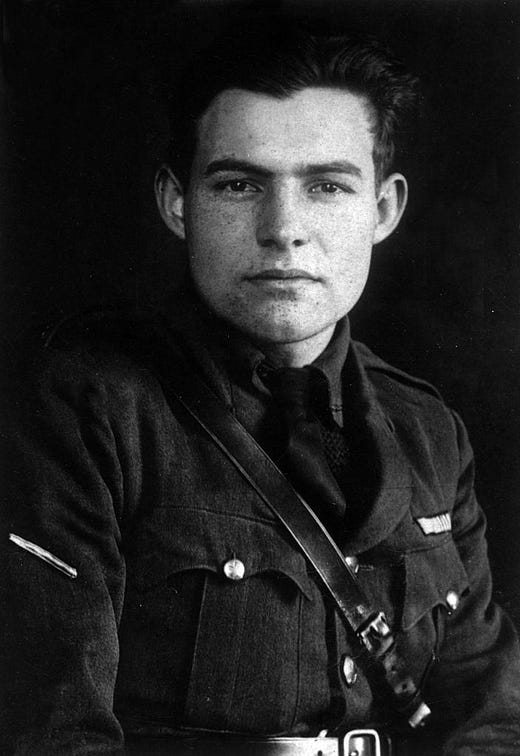There are no heroes in this war
Wounded in Italy during WWI, 19-year-old Ernest Hemingway writes home

During World War I in July of 1918, whilst serving as a Red Cross ambulance driver in Italy, 19-year-old Ernest Hemingway was seriously wounded in a mortar attack that resulted in both legs being “riddled” with shrapnel—injuries that did not stop him from immediately helping some Italian soldiers to safety, an act or bravery for which he was later awarded the Silver Medal of Military Valor. For the next six months, Hemingway stayed in a Milan hospital, a period during which he fell in love with his nurse, Agnes von Kurowsky, a relationship which later inspired his novel, A Farewell to Arms. Amidst all of this, three months after he was injured, Hemingway wrote to his parents back home and reflected on his situation.
18 October 1918
Dear Folks:
Your letter of September 24 with the pictures came today, and, family, I did admire to hear from you. And the pictures were awfully good. I guess everybody in Italy knows that I have a kid brother. If you only realized how much we appreciate pictures, pop, you would send 'em often. Of yourselves and the kids and the place and the bay—they are the greatest cheer producers of all, and everybody likes to see everybody else's pictures.
You, dad, spoke about coming home. I wouldn't come home till the war was ended if I could make fifteen thousand a year in the States—nix. Here is the place. All of us Red Cross men here were ordered not to register. It would be foolish for us to come home because the Red Cross is a necessary organization and they would just have to get more men from the States to keep it going. Besides we never came over here until we were all disqualified for military service, you know. It would be criminal for me to come back to the States now. I was disqualified before I left the States because of my eye. I now have a bum leg and foot and there isn't any army in the world that would take me. But I can be of service over here and I will stay her just as long as I can hobble and there is a war to hobble to. And the ambulance is no slacker's job. We lost one man, killed, and one wounded in the last two weeks. And when you are holding down a front line canteen job, you know you have just the same chances as the other men in the trenches and so my conscience doesn't bother me about staying.
Keep reading with a 7-day free trial
Subscribe to Letters of Note to keep reading this post and get 7 days of free access to the full post archives.


